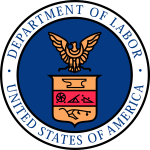Whistleblower Law Blog
Summary Decision Overturned for Whistleblower in Failure to Hire Case

In Hasan v. Enercon Services, Inc., the Department of Labor’s Administrative Review Board (ARB) overturned a summary decision order in favor of whistleblower Syed Hasan who alleges that Enercon Services, Inc. refused to hire him because he is a whistleblower.
Hasan is a structural engineer who was previously discriminated against by his former employer, American Electric Power Company, for reporting unsafe practices at the D.C. Cook Nuclear Plant to the Nuclear Regulatory Commission.
For Hasan to prevail on his whistleblower complaint under the Energy Reorganization Act of 1978 (ERA), he must show that his whistleblowing while at his former employer was a contributing factor in Enercon’s decision to not hire him. Evidence of inconsistencies in an employer’s reasons for not hiring a whistleblower can support a finding of pretext by the employer.
The ARB ruled in Hasan’s favor, stating a summary decision was improper given the existence of a genuine factual dispute that requires an evidentiary hearing:
Hasan’s claim is not based on one application to one advertisement for one job vacancy whereupon his application was filed away and forgotten, as likely occurs to thousands of applicants each day across the county. Rather, Hasan’s claim is that he repeatedly applied for positions at Enercon, and Enercon refused to hire him at any point at least partly due to his whistleblower activities. Hasan’s letters to Enercon expressed that he was willing to work for Enercon “at any place, for any shift and for any salary” that Enercon deemed was reasonable. Hasan sent more than one letter making this statement. He sought employment with Enercon numerous times over the course of two years. In a letter dated February 5, 2003, Enercon expressly told Hasan that it would keep his resume “on file and hope to identify a work opportunity in the future.” Enercon admittedly hired more than a dozen civil/structural engineers after its February 5, 2003 letter to Hasan. So Hasan’s claim is that Enercon repeatedly rejected him, and he believes it was because of his whistleblowing activities.
Recognizing Hasan’s claim as a claim of repeated rejections over a two-year period, there are sufficient documents and facts to allow (but not require) a factfinder to believe that Enercon’s proffered reasons are pretext or that Hasan’s protected activity was a contributing factor in Enercon’s failure to hire Hasan. Enercon asserts that: (1) the jobs in its advertisements never materialized; (2) the advertisements were used to find former Scientech engineers; (3) the job vacancies were for the Germantown office; or (4) the advertisements never resulted in any hires. Yet, the advertisements on their faces were for “immediate opportunities” throughout 2003 and 2004 and expressly described the “available positions.” Enercon’s February 5, 2003 letter expressly told Hasan he would be considered for future opportunities. The existence of future vacancies was repeatedly confirmed by the dozen engineers hired in 2003 and 2004. The advertisements only expressed a preference for “local candidates” and had no reference to Scientech employees. This is not to say that Enercon’s reasons will not prove to be true or legitimate. However, to choose Enercon’s assertions in its motions over its contradictory advertisements is to engage in factfinding without an evidentiary hearing. These factual contradictions, even though created by Enercon’s own choices, must be resolved in an evidentiary hearing….
(citations omitted).
Tagged: Administrative Review Board (ARB), Enforcement Bodies, Whistleblower Laws (Federal), Whistleblower Protection Act (WPA)



